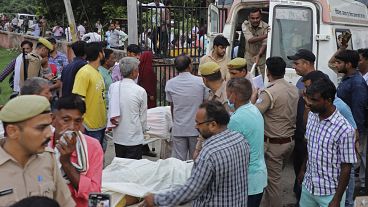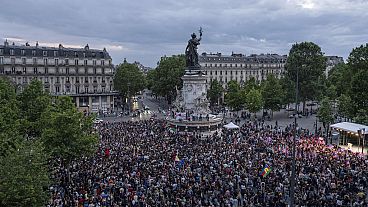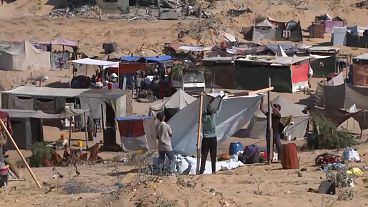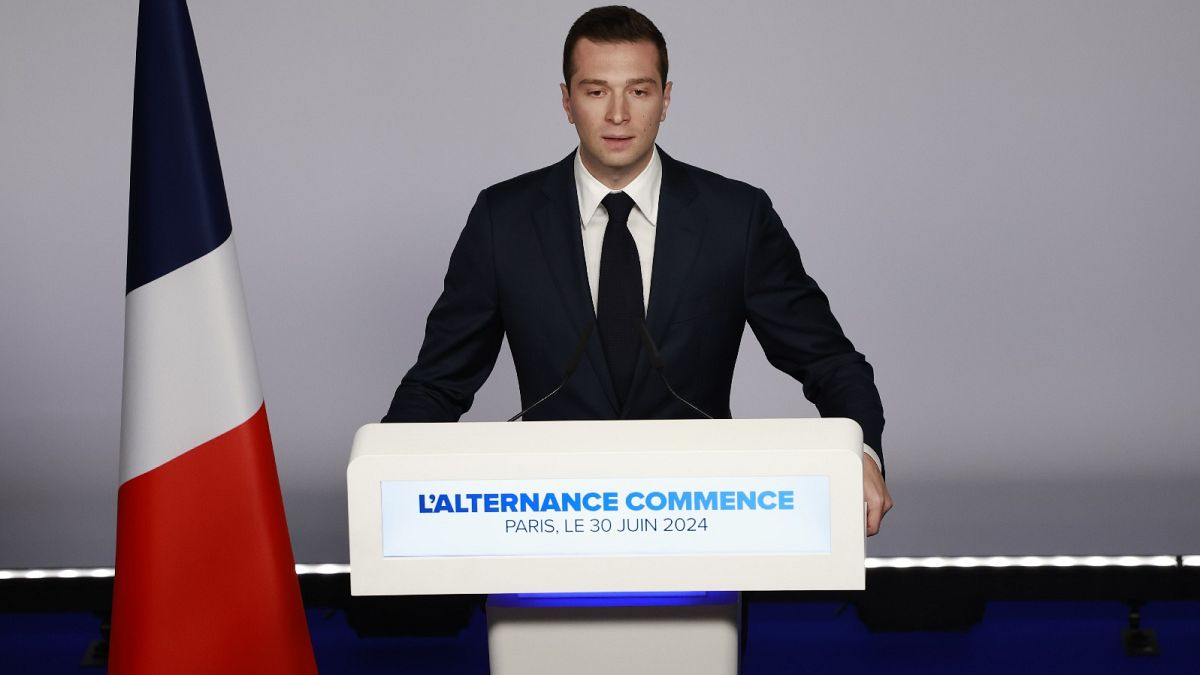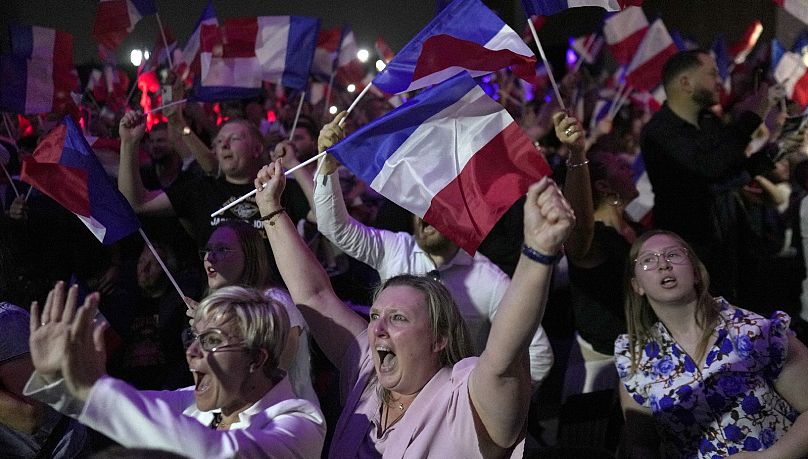The far-right National Rally secured around a third of the vote in the first round of French legislative elections, but that might still not be enough to gain an absolute majority in the National Assembly.
Three weeks after sweeping to an overwhelming victory in the European elections, the far-right National Rally (RN) on Sunday cemented its position as France's leading party, taking a comfortable lead in the first round of the snap legislative poll.
"French people have given a clear verdict and confirmed their clear desire for change by putting the candidates of the National Rally and its allies in the lead," RN leader Jordan Bardella said in his victory speech shortly after 8pm local time.
RN is on track to secure around 33.2% of the vote nationally, according to an Ipsos poll. That's five points ahead of the left-wing New Popular Front (NFP) alliance and a whopping 12 points ahead of the centrist Ensemble coalition of French President Emmanuel Macron.
If the vote is confirmed in the second round next Sunday, it could give RN between 230 and 280 seats in the National Assembly.
That's a huge bump from the 89 it had before the chamber was dissolved on 9 June, though perhaps still not enough to reach an absolute majority, which requires 289 seats.
'The prime minister for all the people of France'
Bardella's five-minute victory speech was delivered in central Paris in front of a room full of journalists from around the world.
And no one else: not a single RN executive to spin the results for journalists, nor supporters to cheer and jeer at the right moments.
The whole exercise seemed choreographed to demonstrate his prime ministerial chops.
A sombre-looking Bardella pledged that he would be "the prime minister for all the people of France ... respectful of opposition, open to dialogue and concerned at all times with the unity of the people".
"Seven days now separate us from a historic choice and I hope that this second-round campaign can take place in a climate of calm, honesty and respect for the institutions and democratic rules of all French men and women," he said.
Yet that didn't prevent him from taking swipes to the left, and centre.
"Clearly, in view of the results, the presidential camp, still largely disowned today, is no longer in a position to win," he said. Emmanuel Macron's centrist coalition seems poised to lose as many as 180 seats and retain just 70.
The left-wing NFP, meanwhile, was branded "the alliance of the worst" whose grip on power would "lead to disorder, insurrection and the ruin of our economy".
The leader of the hard-left France Unbowed (LFI) party, firebrand Jean-Luc Mélenchon, was the only adversary Bardella mentioned by name, an honour not even afforded to Macron.
"Mr Mélenchon and his friends are putting our nation in existential peril," Bardella claimed, arguing that "the dangerous extreme left" had put forward candidates that are on the country's terrorism watchlist, that it planned to "disarm the police", "open the floodgates to immigration", and abolish a law against Islamic separatism.
By contrast, he pitched his formation as an "unprecedented alliance, motivated by national interest", and swore to the French that if installed as prime minister he would be the "guarantor of your rights, your freedoms and our Republican motto, the one that unites all the people of France in the same promise of liberty, equality and fraternity."
He gave his priorities as boosting purchasing power, restoring order and security and "taking control of our migration policy."
A Republican withdrawal against the National Rally?
His solemn address was in contrast to that of Marine Le Pen, the party's former leader and president of its group in the National Assembly, who spoke in front of several hundred flag-waving supporters from her stronghold in Hénin-Beaumont, some two hours north of Paris.
They cheered when she said that the party's results had all but "wiped out the Macronist bloc", and when she announced that she had already secured her seat, bypassing the need for a second round. And they jeered when she mentioned the left-wing coalition or uttered Mélenchon's name.
Both, however, stressed the need for the vote to not only be confirmed but strengthened so that they could govern alone.
"I want to express my gratitude to them [RN voters] and I call on them to remain mobilised in a final effort on Sunday 7 July. The vote they will cast next Sunday is one of the most decisive in the history of the Fifth Republic," Bardella said.
Le Pen, meanwhile, warned that "without a clear majority, there will always be a few old feuds, programmed inertia and dirty tricks to prevent the real changeover that the country urgently needs."
"By voting for the candidates of the National Union, you will ensure that, in unity and fraternity, the country rediscovers the energy to become one. In these days to come, beware of those who, using unjustified fear or invented threats, would only like to perpetuate a system that has failed and continued," she went on.
But the road to an absolute majority for the far-right party is likely to be hindered by a "republican withdrawal" left-wing parties are coordinating.
In constituencies where over two people qualified for the second round by getting over 12.5% of the vote - which the Ipsos pollster estimated at around 250 seats - left-wing parties have said they'll withdraw third-place candidates to avoid splitting the anti-RN vote.
It's a strategy the President also seemed to have espoused.
"Faced with the National Rally, the time has come for a broad, clearly democratic and republican rally for the second round," Macron wrote in a statement.

